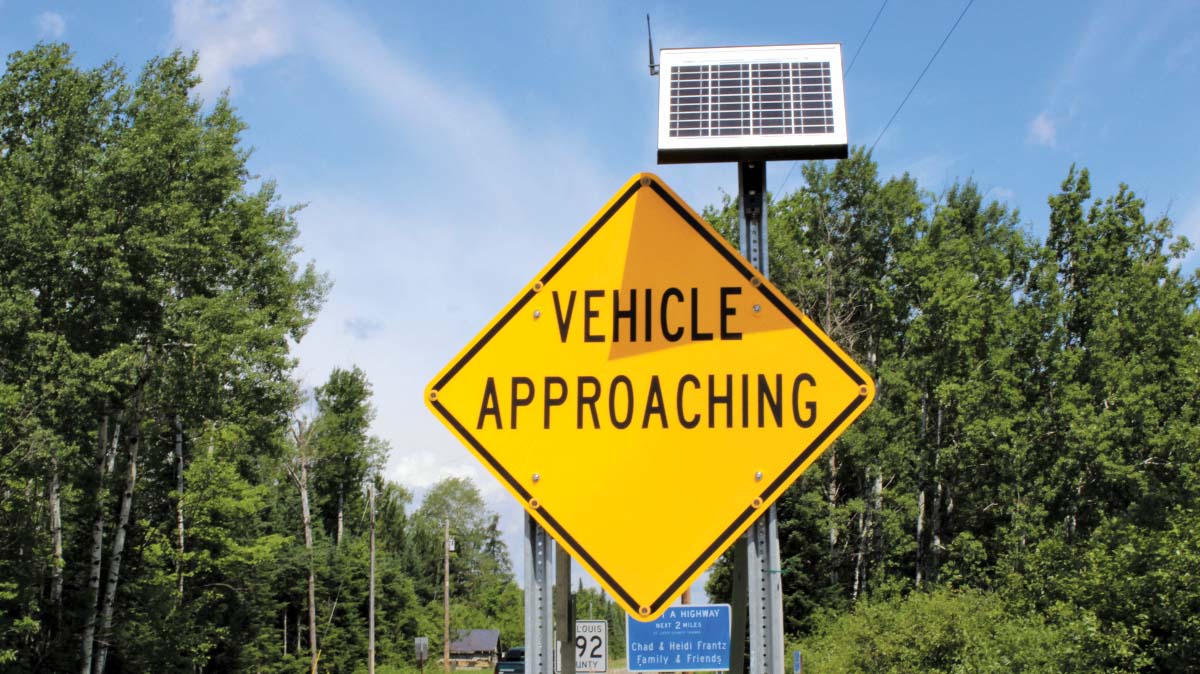The results of a two-pronged investigation by researchers from the Minnesota Traffic Observatory at the US University of Minnesota on the safety related effects of flashing LED stop signs have just been released.
They conducted two studies: a statistical study to compare the crash frequency after installation of a flashing LED stop signs at 15 intersections to a prediction of what that crash frequency would have been had the flashing LED stop signs not been installed; and a field study using video to exa
The results of a two-pronged investigation by researchers from the Minnesota Traffic Observatory at the US 584 University of Minnesota on the safety related effects of flashing LED stop signs have just been released.
They conducted two studies: a statistical study to compare the crash frequency after installation of a flashing LED stop signs at 15 intersections to a prediction of what that crash frequency would have been had the flashing LED stop signs not been installed; and a field study using video to examine the behaviour of drivers approaching a stop-controlled intersection before and after the installation of a flashing LED stop sign.
The statistical study estimated the reduction in crashes at about 41.5 per cent, but with 95 per cent confidence this reduction could be anywhere between 0 per cent and 70.8 per cent. The conclusion was that installation of the flashing LED stop signs reduced the frequency of angle crashes but that the magnitude of this reduction was uncertain.
The field study found that before installation of the LED stop sign, there appeared to be no change in the relative proportion of clear stops versus clear non-stops when minor approach drivers did not face opposing traffic, but after installation of the flashing LED stop sign the relative proportion of clear stops increased for drivers who did encounter opposing traffic
The group came to the final conclusion that, although qualified by the relatively small sample sizes and wide confidence intervals, a reasonable interpretation is that flashing LED stop signs appear to have an effect similar to that of stop sign-mounted beacon.
They conducted two studies: a statistical study to compare the crash frequency after installation of a flashing LED stop signs at 15 intersections to a prediction of what that crash frequency would have been had the flashing LED stop signs not been installed; and a field study using video to examine the behaviour of drivers approaching a stop-controlled intersection before and after the installation of a flashing LED stop sign.
The statistical study estimated the reduction in crashes at about 41.5 per cent, but with 95 per cent confidence this reduction could be anywhere between 0 per cent and 70.8 per cent. The conclusion was that installation of the flashing LED stop signs reduced the frequency of angle crashes but that the magnitude of this reduction was uncertain.
The field study found that before installation of the LED stop sign, there appeared to be no change in the relative proportion of clear stops versus clear non-stops when minor approach drivers did not face opposing traffic, but after installation of the flashing LED stop sign the relative proportion of clear stops increased for drivers who did encounter opposing traffic
The group came to the final conclusion that, although qualified by the relatively small sample sizes and wide confidence intervals, a reasonable interpretation is that flashing LED stop signs appear to have an effect similar to that of stop sign-mounted beacon.










